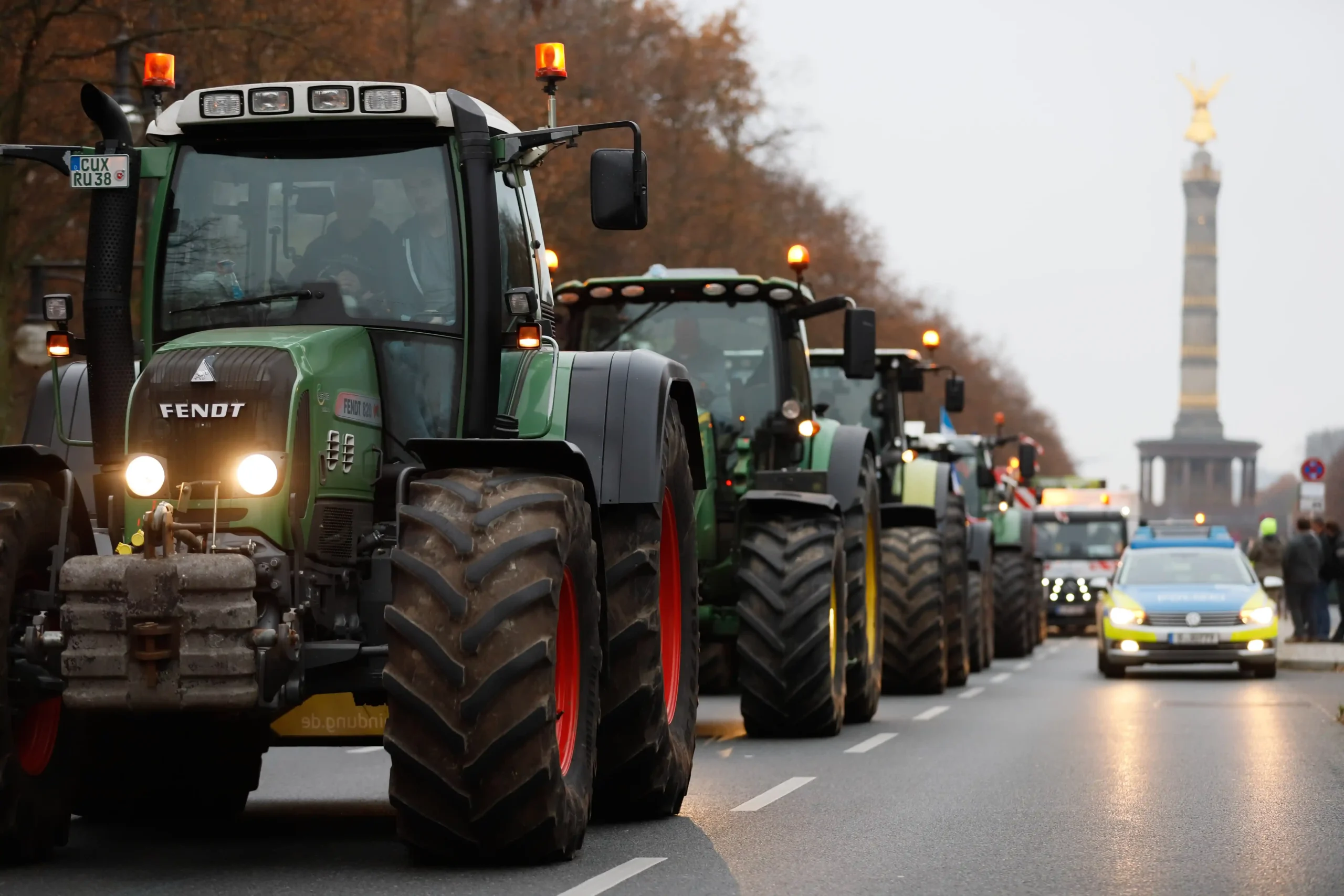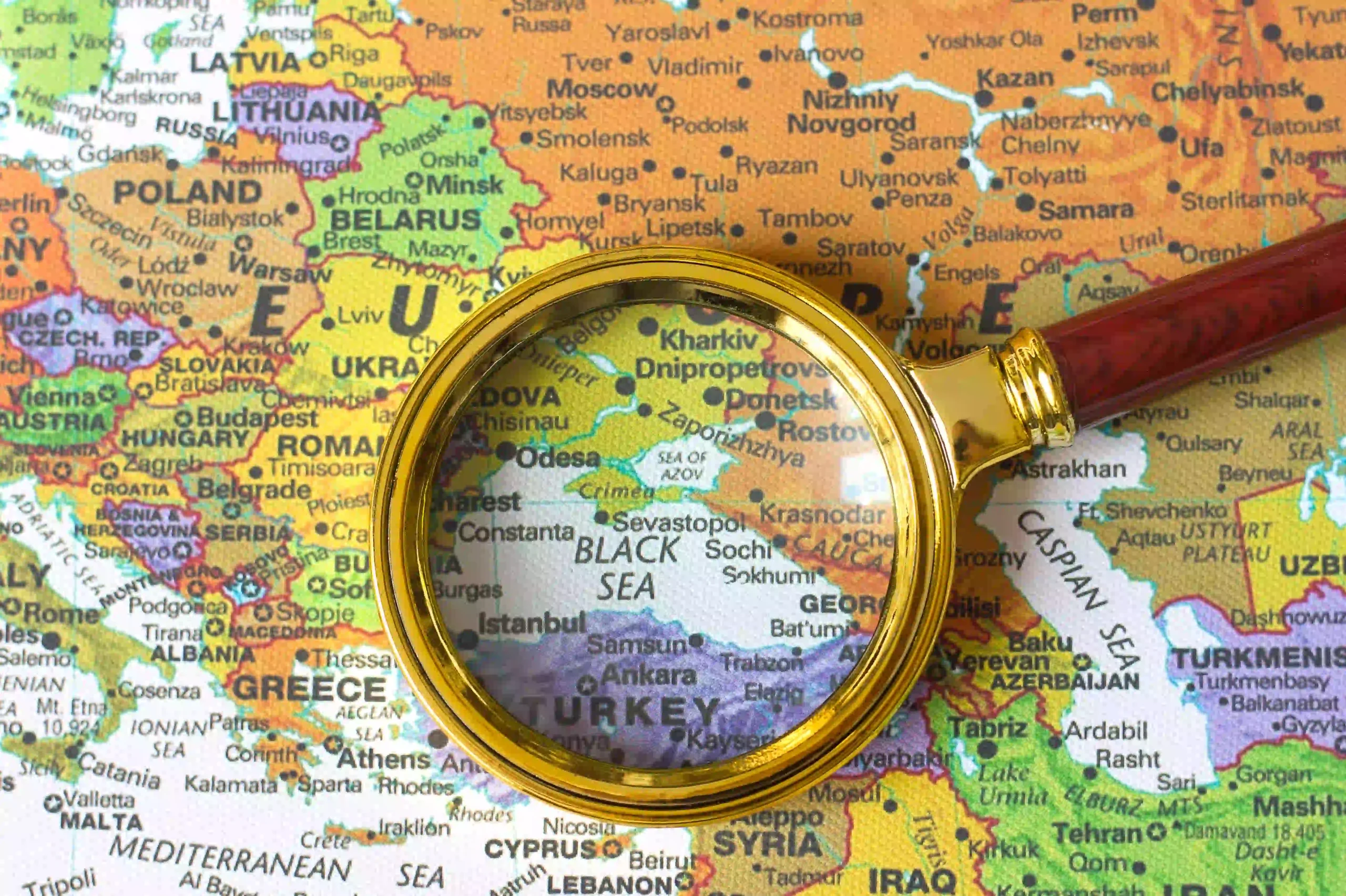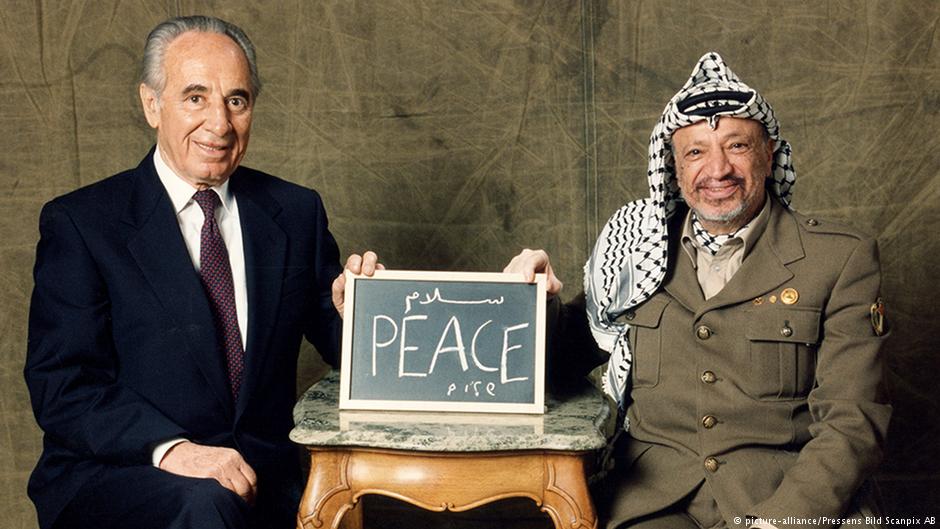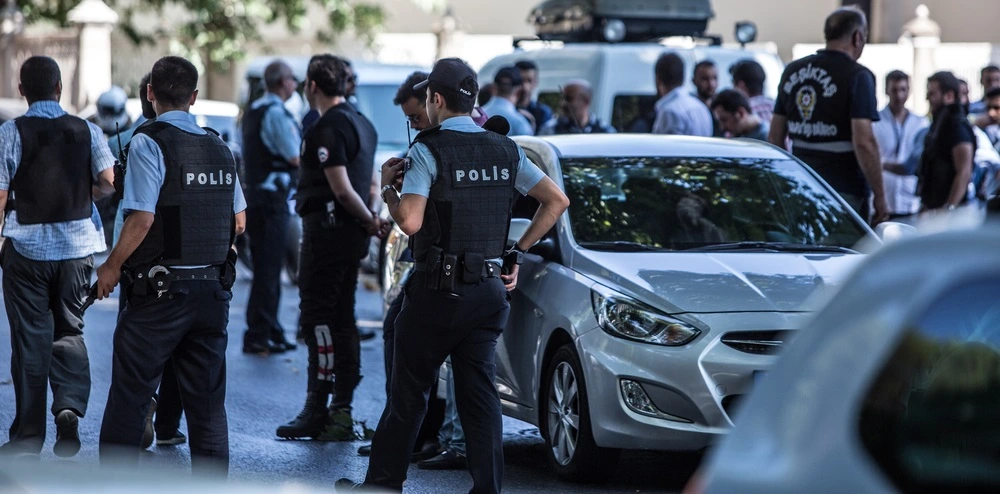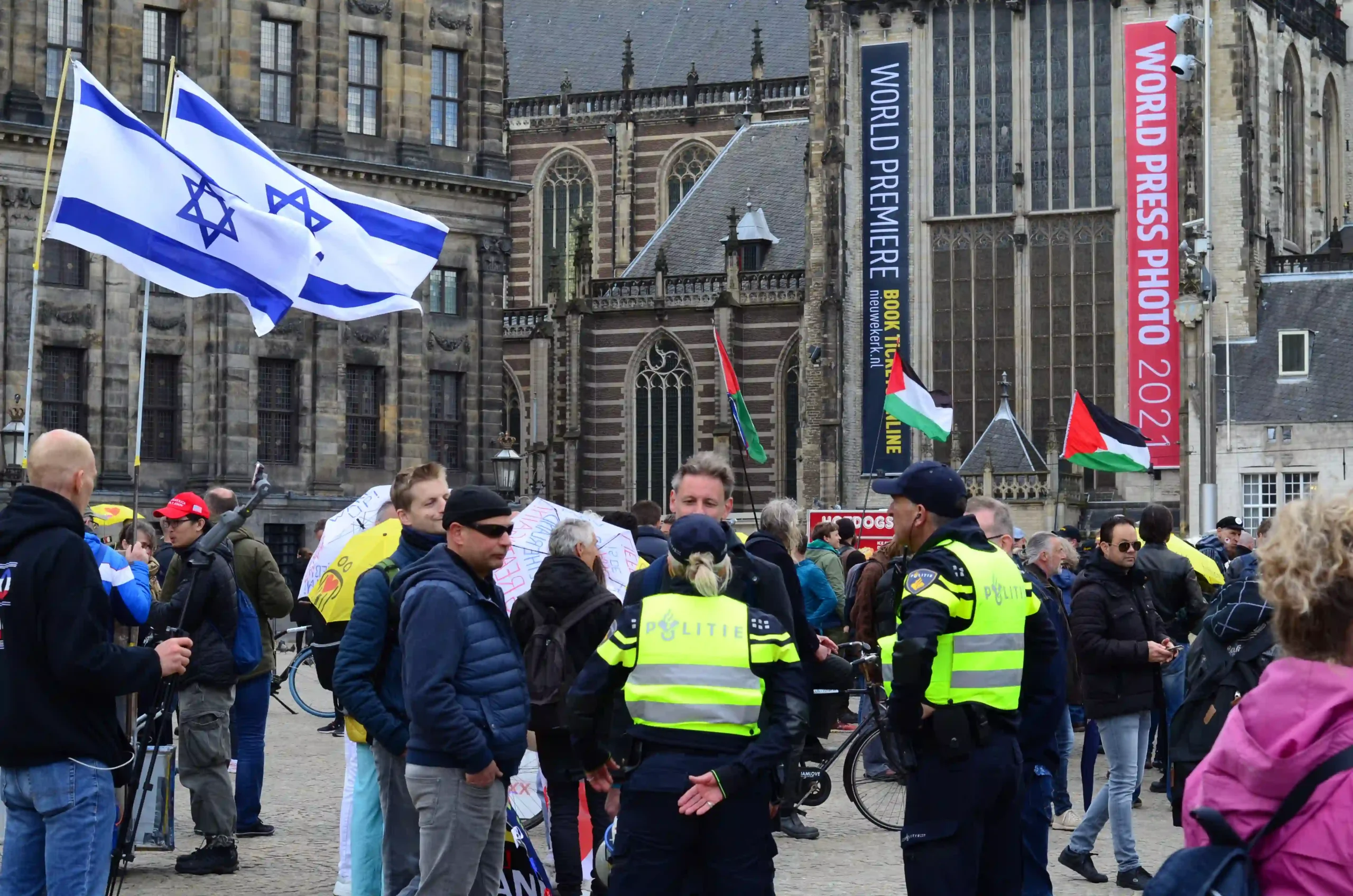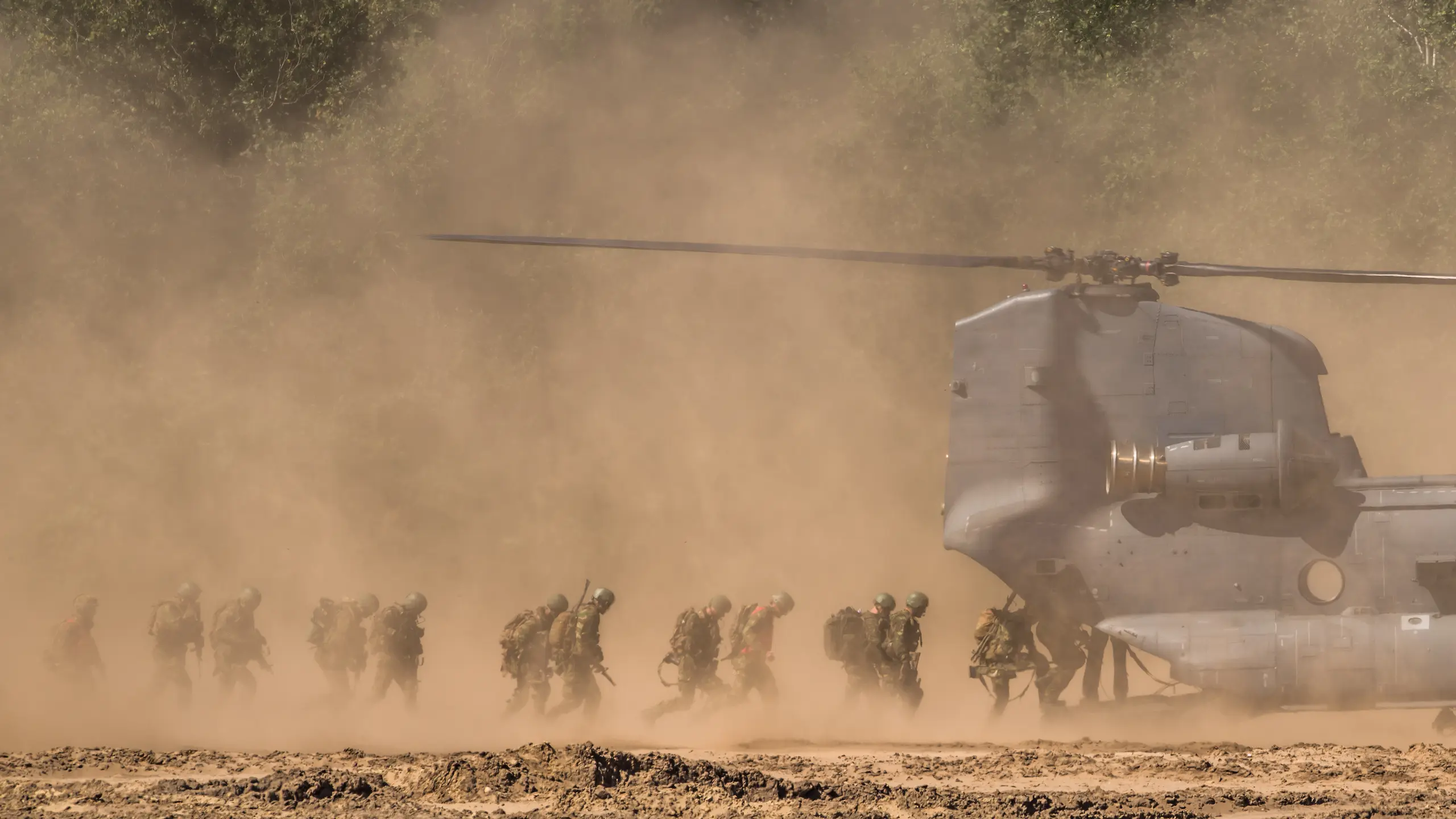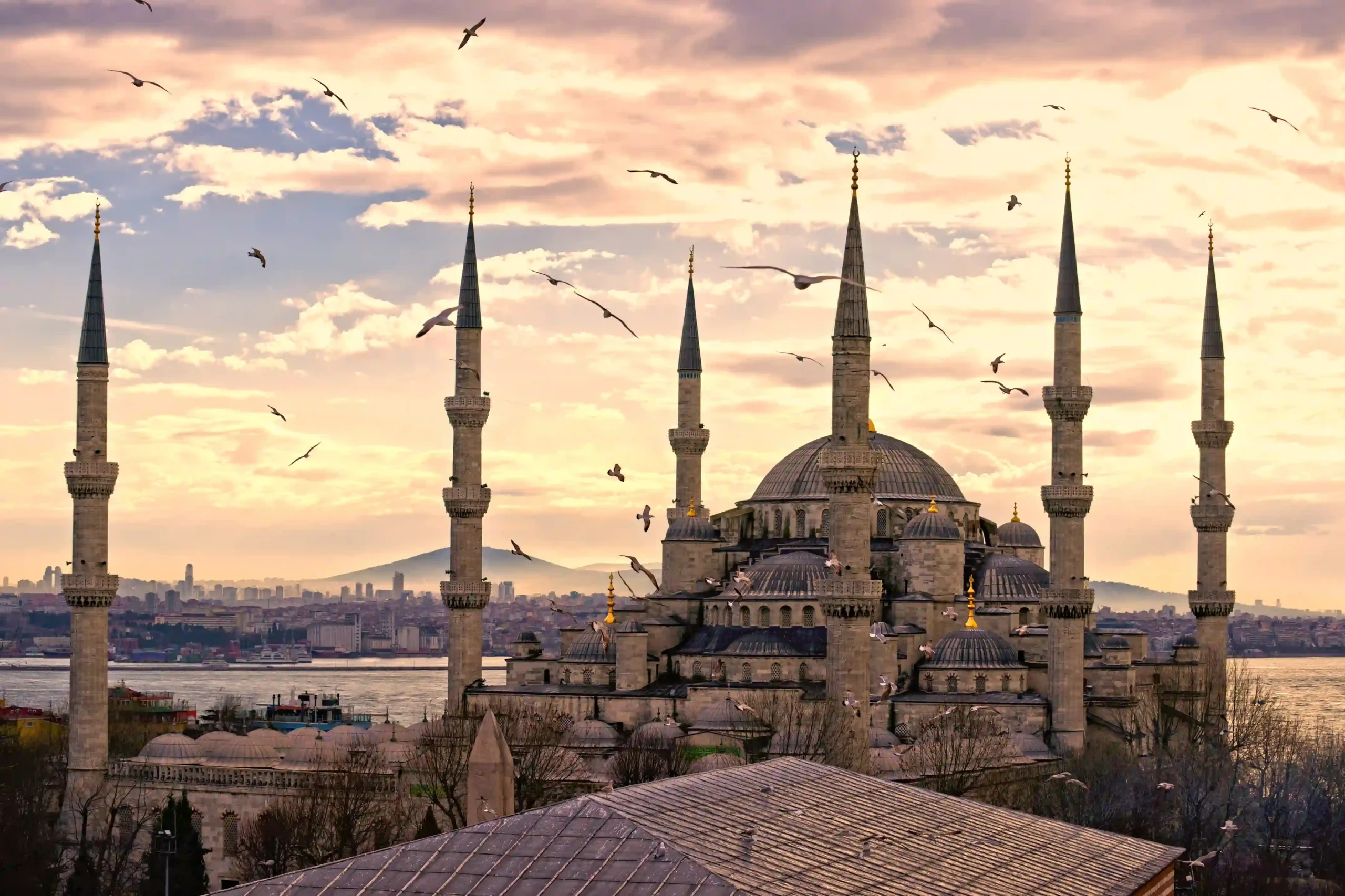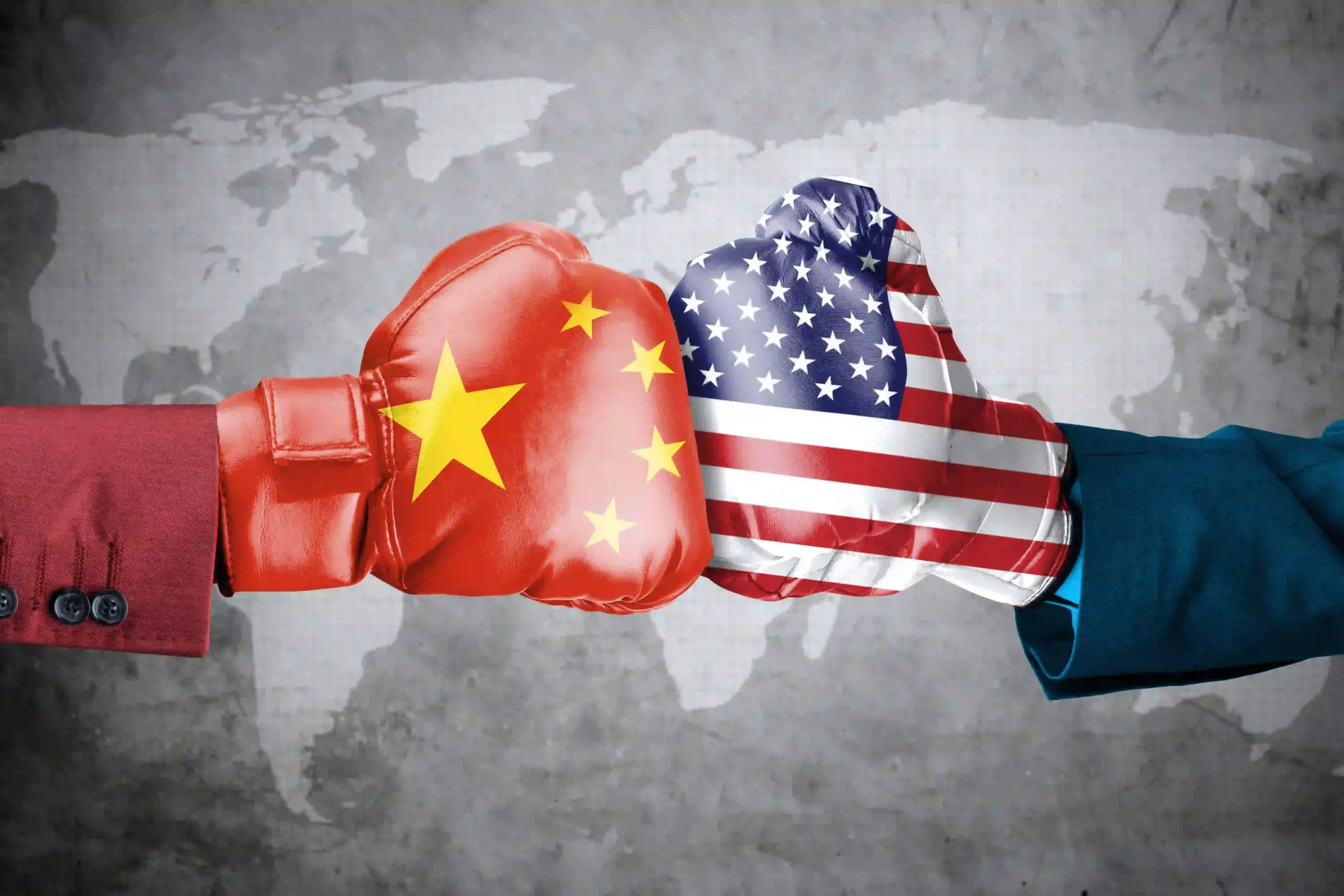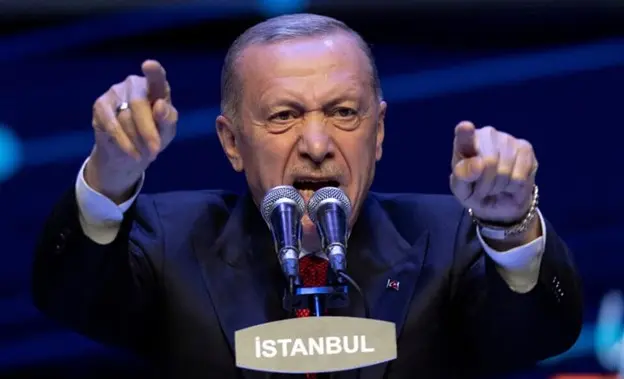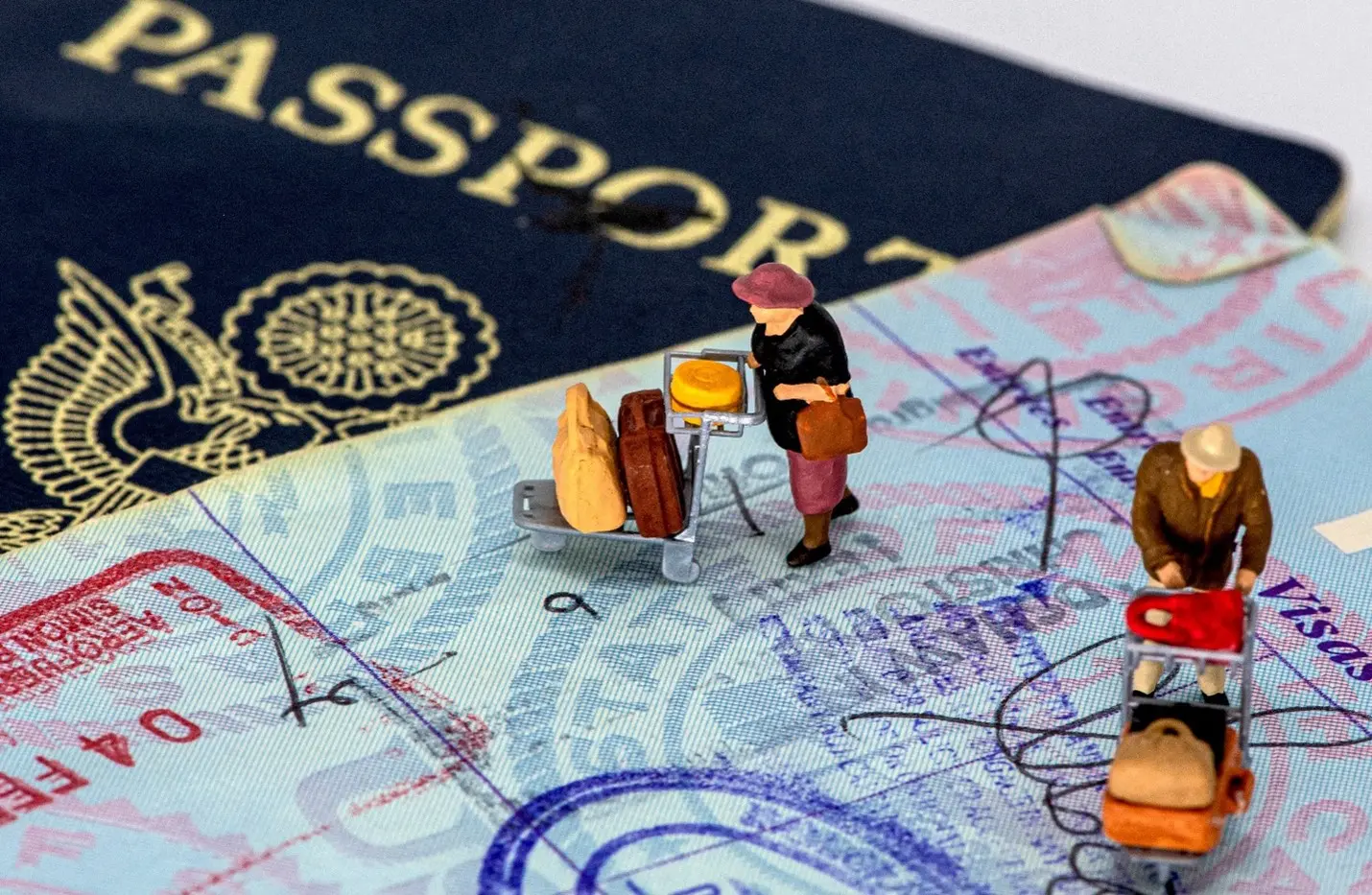10 Mar 2024
Macron’s War Rhetoric and his Desperate Quest for Prestige
“Nothing should be ruled out” said French President Emmanuel Macron when asked about possibilities of sending troops to Ukraine. By speaking about going to war, Macron may have aimed to dispel a long-standing joke about the French always surrendering. However, both French and NATO leaders have publicly rejected the idea of sending European or alliance troops to Ukraine. Prominent figures such as U.S. President Joseph Biden, German Chancellor Olaf Scholz, Polish Prime Minister Donald Tusk, NATO Secretary-General Jens Stoltenberg, and others have asserted that such action is not on the table. The widespread domestic and regional opposition implies that even if Macron was genuinely considering sending troops to Ukraine, he would not receive the necessary support for such a radical decision.
5 Mar 2024
How Europe Alienated Farmers and Revived Populism
This article was originally published on Ahram Online on Mar. 4, 2024.
Farming and food have become two of Europe’s most emotionally charged issues. The farmers protests that have been erupting across the EU this year are finally getting much sought after attention. But farmers have been expressing their discontent with EU policies for years and now, with a broader cost-of-living crisis, the discontent is spreading as European’s socio-economic anxieties rise. From favouring corporate interests to mishandling crises, European policies have presented populist and far-right forces with a new opportunity to pull in more voters —and it’s proving successful.
22 Feb 2024
Turkey: Reaping the Rewards of a Turbulent Black Sea
Since the 16th century, the Black Sea has always been a lake of tensions. Contrary to the Wars of The Holy League, in which the Ottoman Empire witnessed its first territorial loss, the contemporary situation signals Turkish gains in the region. The ongoing war in Ukraine has revived the Montreux Convention which gives Ankara the higher hand in the Black Sea and led other NATO members to appreciate the indispensable Turkish role. Recently, developments in the Black Sea ranging from decaying Russian power to Western apprehension are offering Ankara some Turkish delights.
5 Feb 2024
Navigating the Two-State Solution: Balancing Possibility and Hope in the Palestinian Cause
The Palestinian-Israeli conflict stands as one of the world's most intricate and pressing issues, marked by enduring conflicts between Palestinians and Israelis, with potentially dire consequences that could escalate into a regional war. In 1993, both Yasser Arafat, leader of the Palestine Liberation Organisation, and Israeli Prime Minister Yitzhak Rabin embraced the two-state solution, leading to the signing of the Oslo Accords. The essence of these agreements aimed at establishing two states, one for Palestinians and the other for Israelis, as a pivotal step toward a conclusive resolution to the prolonged and costly conflict. Unfortunately, the intended implementation of these agreements faltered, resulting in failed efforts and the division of Palestinian society between Fatah in the West Bank and Hamas in the Gaza Strip. Instead of fostering confidence, Israeli positions hardened toward Palestinians, leading to a surge in settlements in the West Bank and east Jerusalem. Currently, approximately 700,000 Israelis reside on lands designated for the Palestinian State, contributing to a decline in both regional and global interest in the matter.
The Palestinian cause regained global prominence with the events of October 7, marking the end of a three-decade stagnation and a background role amid the Arab Spring and subsequent regional and global crises. The Israel-Hamas War raised international concerns about the potential escalation into a regional war. It heightened fears of derailing the Middle East peace process, particularly the "two-state solution." Israeli officials have recently declared that this option no longer exists, despite opposition and warnings from some of Tel Aviv's closest allies, notably Washington.
These indicators underscore the notion that stability in the Middle East hinges on a resolution to the Palestinian cause that aligns with the national aspirations of the Palestinian people. Consequently, discussions surrounding a two-state solution have resurfaced as the optimal proposal to end the conflict, serving as an alternative to the right-wing expansion and settlement policy on the West Bank. Such a policy could potentially isolate and compromise Israel's security while significantly depleting its military and financial resources. Hence, this analysis addresses the crucial question: Is the two-state solution still viable given the current circumstances?
29 Jan 2024
Decoding the Istanbul Church Attack
This article was originally published on Ahram Online on Jan. 31, 2024.
The attack on the Santa Maria church in Istanbul is the first attack on Turkey claimed by IS since 2017. According to the Islamic State's statement, the attack was a response to one of its leaders instructing for the attack on "Jews and Christians". However, the end goal of the attack remains unclear and that raises questions about the legitimacy of IS’s claim. Over the last decade, the world has witnessed a sharp rise in terrorist attacks often claimed by terrorist groups striving to establish their relevance and influence over international politics. In fact, between 1998 and 2016, an estimated 16% of attacks were falsely claimed.
30 Nov 2023
The West Polarised: Impact of the War in Gaza
Ramifications of the Israeli-Hamas War have not been confined within Gaza or the Middle East’s borders. Polarisation over the Palestinian cause has reached a new character especially in the Western world where such a trend has never been as deep. Cracks within governments and societies can be traced to a volatility of values, exposure to social media, and demographic changes. With such an unprecedented divide over Western governments tolerating Israeli impunity in Gaza, the West is faced with a moral dilemma which might cost it it’s claimed “moral superiority”.
18 Oct 2023
Hannibal Protocol: Will Israel Burn Hamas’s Leverage?
The emergency government of Israel has taken decisive steps, announcing its intent to declare war and initiate comprehensive ground invasion preparations in response to the recent incursion by Palestinian factions on October 7, 2023. This incursion targeted over 20 locations surrounding the Gaza envelope. It resulted in the capture of numerous Israeli soldiers and officers stationed along the front lines in the Gaza Strip's secure zones. The present prisoner crisis is one of the most severe episodes in the long history of confrontations between Israel and Palestinian factions.
12 Oct 2023
Shifting Seas: Changing Directions of Animosity in Turkish Society
While hosting approximately four million Syrian refugees, Ankara no longer maintains its previous reputation as a warm and welcoming host. A series of events have indicated a growing trend that can be described as "Anti-Arabism," while simultaneously, the historical animosity towards Jews is waning. It is suggested that the former trend may be feeding into the latter. Due to a substantial influx of migrants and a challenging economic situation, refugees of Arabic descent appear to have become scapegoats, surpassing Jews as the primary target for hate speech and hostility in the country. These two trends might be interconnected, and understanding their underlying factors and the evolution of this phenomenon demands careful consideration.
31 May 2023
Great Power Competition and Rebalancing Acts in the Middle East
Many analysts argue that Washington is losing its position as the only global hegemon with the rise of other Great Powers in the international arena. The relative demise of the American superpower paves the way for the end of an exceptional era of a Uni-Polar system and the rise of either a Bi-Polar or a Multi-Polar one. Arguments usually revolve around the rise of Russia and China as the main rivals to the United States. However, in this analysis, we argue that the Russian side is better to avoid being considered for such a competition for being involved in a hectic war which requires a sweeping victory for Moscow to compensate for heavy economic losses. China, on the other hand, is gaining momentum on the diplomatic and, to a lesser extent, the security front as new territories for Beijing ever to set foot on. Nevertheless, it is also the case that Washington is still maintaining its supremacy in major arms sales. The Middle East proved to be of paramount importance in the competition among great powers. With Beijing, Washington, and even Moscow trying to gain some influence, countries of the region have been shifting their foreign policies to be more independent to maximise benefits from the newly established world order. Accordingly, they are playing the rebalancing game which stipulates balancing powers mainly between the United States and China.
2 May 2023
Nationalism: The Last Card in Erdogan’s Hands
With the date of Turkish elections coming soon, Turkish president and his Justice and Development Party (AKP) are facing one of the most serious challenges since the year they came to power. Namely, inflation exceeded 80% in September 2022 and Turkish Lira plummeted in the face of American Dollar. These economic hardships are leading the prospects of a political change to peak. According to polls, Erdogan is in real trouble with the AKP receiving barely 29.5% of votes. Accordingly, Erdogan and his allies resorted to the Nationalist rhetoric knowing that it is an important card when it comes to attracting Turkish citizens’ votes. Turkish Nationalism is believed to be nurtured by Kurdish uprisings and the belief in the “revival” of the Ottoman empire. Next May, general elections are to be held in the middle of the aforementioned atmosphere which threatens Erdogan's legacy. Using the same nationalist tactic as he used in 2018, will the Turkish President succeed again or it is a burned card not useful anymore?
12 Apr 2023
Migration Diplomacy in Transit Countries: How can Tunisia Leverage its Geopolitical Position?
Migration is becoming an important area of bilateral and multilateral diplomatic relations. Examples include intergovernmental agreements to limit, or encourage migratory flow, the preferential treatment to certain foreign nationals, the creation of temporary labor migration laws, and so on. However, the term migration diplomacy can go beyond agreements between states to include diplomatic tools states use in order to extract benefits from other states. It is linked to how cross-border populations’ flow is linked to states’ diplomatic goals. Accordingly, states can leverage their position in the migratory process. In this regard, states can either be considered a Sending state, a Receiving state “also known as destination countries” or a Transit state. Sending countries are usually under-developed ones from which people tend to migrate from due to a myriad of “push factors” such as social, cultural, economic and even climate change reasons; diplomacy in this case is to be called Emigration diplomacy. Receiving countries are the more developed ones to be targeted as destination for immigrants wishing to find better living condition; hence, Immigration diplomacy. Finally, Transit countries are considered an intermediary solution to those who flee their countries of origin aiming to reach another country. However, for some reasons, mainly geographical ones, they tend to settle in a ‘third state’ for temporarily as a transit for their final destination.
In this analysis, it will be discussed how migration diplomacy can be useful especially for transit states who can always leverage on their geographical positions by obtaining concessions from receiving states who which to stop migratory flows from reaching either their shores or their borders. At the first part, it will be demonstrated how have some transit states benefitted from their position. At the second part, the Tunisian case will be discussed. Tunisia, as a vital corridor for Sub-Saharan emigrants aiming for reaching European borders through the Italian shores, falls under the umbrella of a transit state. Given its current severe economic situation, Tunisia can grab the opportunity and use migration flows as a source of income rather than scapegoating them for the country’s problems.
11 Apr 2023
Between Grain and AK-47s: Russian Influence in Africa
The Russian presence in Africa has recently increased after a decline of nearly three decades since the dissolution of the Soviet Union in the nineties of the last century. Russian-African relations are part of Russia's new strategy to enhance its international influence. This strategy conforms to Russia's situation in international affairs, including its support for countries that contradict Western policies. Moscow has focused its influence on the West African region, taking advantage of Western policy mistakes, the mounting anti-European sentiment, and the long-standing failure of international and domestic actors to address the root causes of the regional instability. The first Russian-African summit in Sochi in October 2019 concluded contracts with more than 30 African countries for the supply of weapons and military equipment. It thus opened the door for state-backed companies to invest heavily in the security and technology sectors and industries that extract natural resources such as oil, gas, gold and other minerals.
On the other hand, the Russian-Ukrainian conflict did not impede this rapprochement but rather contributed to developing the partnership between the two parties to take the form of a strategic alliance. This was apparent in the speeches and statements of President Vladimir Putin, the most prominent of which was the speech he delivered at the International Parliament Conference "Russia - Africa in a Multipolar World", which was held in Moscow in March of this year on the sidelines of Saint Petersburg preparations for the second coming Russian – African summit to be held in July 2023. Putin reiterated that cooperation between Moscow and African countries was and will always be one of the top fixed priorities of Russia's foreign policy, declaring Russia's fulfilment of all its obligations, including supply of food, fertilisers, fuel and other essential products to the countries of the continent, which helps ensure food and energy security.
In light of the ongoing Russian-Ukrainian conflict, this analysis aims to shed more light on the motivations and characteristics of the Russian strategy in Africa. It also seeks to highlight the challenges to Russian influence expansion as well as the prospects for Russian-African relations in the future.

